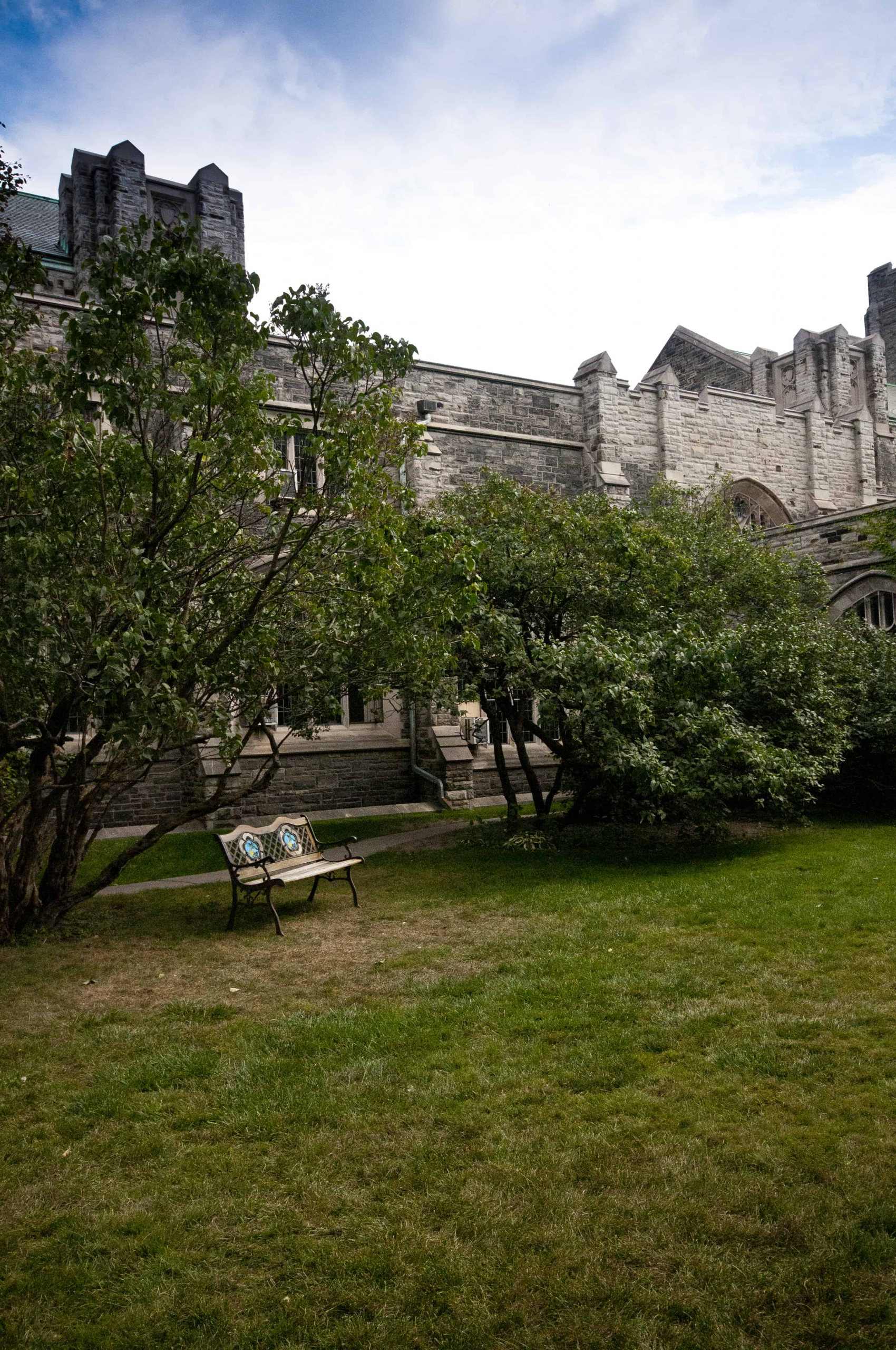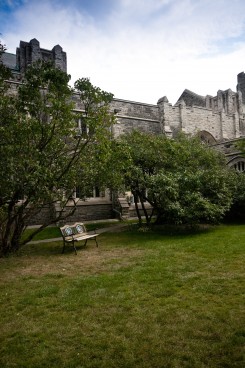Colleges are undoubtedly the defining feature of the undergraduate experience on the St. George campus. While this is especially true for students who live in residence in their first year, it also extends to students who commute, as they often identify strongly with their colleges long after orientation week. Colleges tend to form the core of extracurricular activities for many students. Their libraries and student spaces rival Hart House, Gerstein, and Robarts as favourite places to gather on campus. With the advent of first year programs, such as Vic One, colleges are also taking on a renewed role in undergraduate education.
Despite the undeniable benefits of the college system, some worry that colleges divide the university’s students and weaken their sense of joining common experience. Quite the contrary; as Jonathan Scott argues in the summer issue of the University of Toronto Magazine, colleges provide a powerful rallying point for students within a large university. The college system is certainly not without its flaws, particularly for commuter students, to whom colleges too often offer little in exchange for their fees. But these limitations are no argument for going without colleges, for the university would almost certainly be more uninviting without them.
Nevertheless, as the university refocuses on graduate education according to the plan laid out in the Towards 2030 report — a change which will be particularly pronounced on the St. George campus — the role of the colleges will likely need to change as well. Fewer undergraduates downtown mean smaller budgets for the colleges. Such a shift might allow the colleges to refocus on those aspects of the undergraduate experience to which they are most devoted. But the changing nature of the university will undoubtedly spell change for the colleges.
One possible change, which may not be obvious either to the university administration or to the colleges, is to consider giving graduate students a place within the college system. While U of T borrows much from Cambridge and Oxford — from things as large as the collegiate system itself to things as small as the names of the Buttery at Trinity and the JCR at UC — one thing it has not taken up is the significant role that graduate students play in college life at those universities.
There are exceptions to this rule, not the least of which is Massey College, the small, elite graduate college on Devonshire Place. Moreover, the theological colleges affiliated with the university (Emmanuel, Knox, Wycliffe, and Regis) consist solely of graduate students. Trinity’s student body also includes some graduate divinity students. But only Massey has, as members, graduate students studying everything from astrophysics to zoology and professional students in business, law or medicine. At Cambridge and Oxford, all graduate students are members of colleges or “permanent private halls,” the British term for colleges with religious affiliations.
If the university’s leadership is serious about refocusing the university, especially the St. George campus, on graduate education, then it might do well to consider giving graduate students a place in the college system. Not only would this extend the benefits of college membership to these students, but it might also represent an opportunity to involve them in undergraduate education as well. Currently, Trinity hires graduate and professional students to serve as “academic dons.” These students fulfill some of the traditional responsibilities of dons at other colleges, but are also available to provide academic and career advice to the students of the college. Graduate members of colleges might be able to fulfill a similar function.
Some colleges at Cambridge and Oxford accept both undergraduate and graduate students, while others accept only graduate students, a system that could be replicated at U of T. Certain colleges could focus on accepting students in certain disciplines, while others could open themselves up to a wider range of students. Regardless of the specific arrangement, the positive role that colleges play in undergraduate life makes it likely that they could also play a similar role in graduate life at the university.
Such a shift would require creating new relationships between the colleges and the graduate faculties, including the Faculty of Law and the School of Graduate Studies. Including graduates in existing colleges would put new demands on them and change their cultures. But the biggest missing ingredient is undoubtedly money; starting new colleges would be expensive, as would expanding existing ones. What is clear is that colleges could play a significant role in successfully focusing U of T on graduate students.



